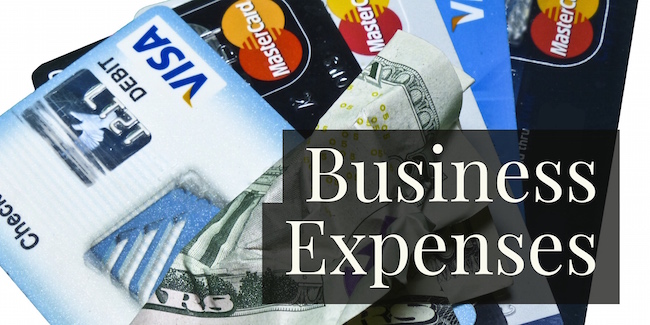Running your own business is no easy task. When entrepreneurs begin talks of their great new venture, they often times rejoice in the potential revenue and profits. While it’s important to forecast your potential earnings, it’s arguably more important to have a very firm understanding of your business expenses.
Keeping your business up and running is usually quite expensive. That’s why entrepreneurs seek various forms of funding to get the ball rolling early. The obvious expenses usually get noted. Employee salaries, office space and supplies, server costs, etc.. are usually taken into account. However, often times inexperienced entrepreneurs fail to forecast certain expenses, which often times comes back to haunt them. Here are three business expenses you probably forgot to forecast:
Table of Contents
ToggleEmployee Expenses
While employee payroll often falls under employee expenses, this is not what i’m referring to. If you’re a small start-up, these expenses are typically not an issue. However, as you start to scale you absolute need to factor employee expenses into your financial or business planning. Any reputable business owner will cover employee expenses and i’m not necessarily referring to paper and pencils for the office. The more expensive items may include work materials like computers or monitors, travel expenses, and even company vehicles.
A great way to keep track of employee expenses is to use a business credit card. Make sure your employees make their business related payments on their cards so you can both keep track and write off your expenses. NerdWallet provided a list of the top small business credit cards of 2016. Every business has different needs, so take the time to shop around for the right card.
Business Insurance
Business is quite unpredictable. As a business owner, you do everything in your power to keep things under control. Even the greatest leaders and business owners are receptive to potential liabilities or disasters. The majority of new businesses don’t even consider this expense. It’s one of those “it’s never going to happen to me” decisions that may make or break your business.
Depending on the size of your business, you’ll most likely be looking at different insurance policies. The Insurance Information Institute outlines the various types of insurance most likely used by businesses depending on size.
- Home-based business: If you’re business is based out of your house, say your an independent architect, you’ll either be working for yourself or with one other partner or employee. In addition to homeowners insurance, you may also want to consider property and liability insurance.
- Small Business: According to the SBA, a small business is considered one “that is independently owned and operated, is organized for profit, and is not dominant in its field.”
- The most common small business policy is a BOP or Business Owners Policy. These standardized small business policies usually cover against the most common risks.
- Medium-Sized Business: Typically medium-sized businesses are those that have between 50 and 1,000 employees and earn between $10MM to $1B annually.
- Most insurance policies for medium-sized businesses are a mixture between property and liability coverage. If you’re operating in multiple areas you may want to seek a custom policy as they can vary a bit.
- Large Businesses: Large businesses typically operate with over 500 employees. If you’re a large business seeking insurance, odds are you aren’t reading this article. However, it’s always good to be knowledgeable in regards to protection.
- Large businesses tend to have entire departments dedicated to risk and compliance. Large businesses will almost always go with custom commercial insurance policies that fit their specific needs.
Selling Yourself Short
Yes, building a company from the ground up will require hundreds of unpaid hours with hopes of huge returns from your founders shares. However, we still have to think in the “now” in order to survive. If you haven’t budgeted your own salary into your expenses, then you’re making a huge mistake.
One of the biggest issues of leaving your own salary out of your projections is that you’re creating an artificially low break-even point. Depending on your lifestyle, your salary (eventually employee salaries) will most likely be one of your largest expenses if not largest. Failing to forecast this will create a huge problem down the road.
A great way to forecast this is to factor your salary into your expenses in between the 7 to 9 month mark. This gives you enough time to build your business to the point where it can not only sustain itself, but also support it’s employees. If it makes the most sense to allocate the cash elsewhere at that point you can always mark your salary as “deferred”. This way, you can use the money to scale your business while still accounting for the expense.
The viscous cycle that swallows most companies and entrepreneurs is when they fail to recognize their worth and compensate themselves. If you’re business can’t afford to pay it’s founders and employees then you should either pivot or “take it behind the barn”. It’s never an easy thing to do, but its more important to cut your losses and move on than to hang on to a sinking ship.
Final Thoughts
You don’t need to be a finance whiz to accurately budget your start-up expenses, you just need to be diligent. There’s never any harm in over-forecasting your expenses, because in the end of the day you’re better safe than sorry. While every business is generally different, it’s important for every one to take all possibilities into account especially these three.















